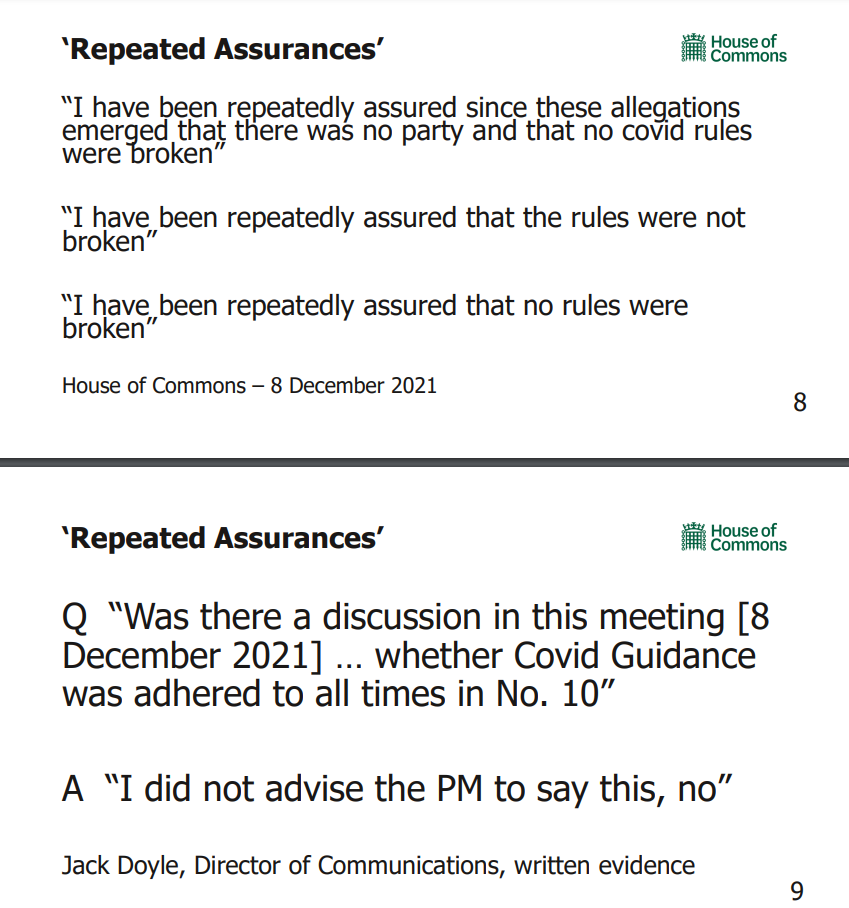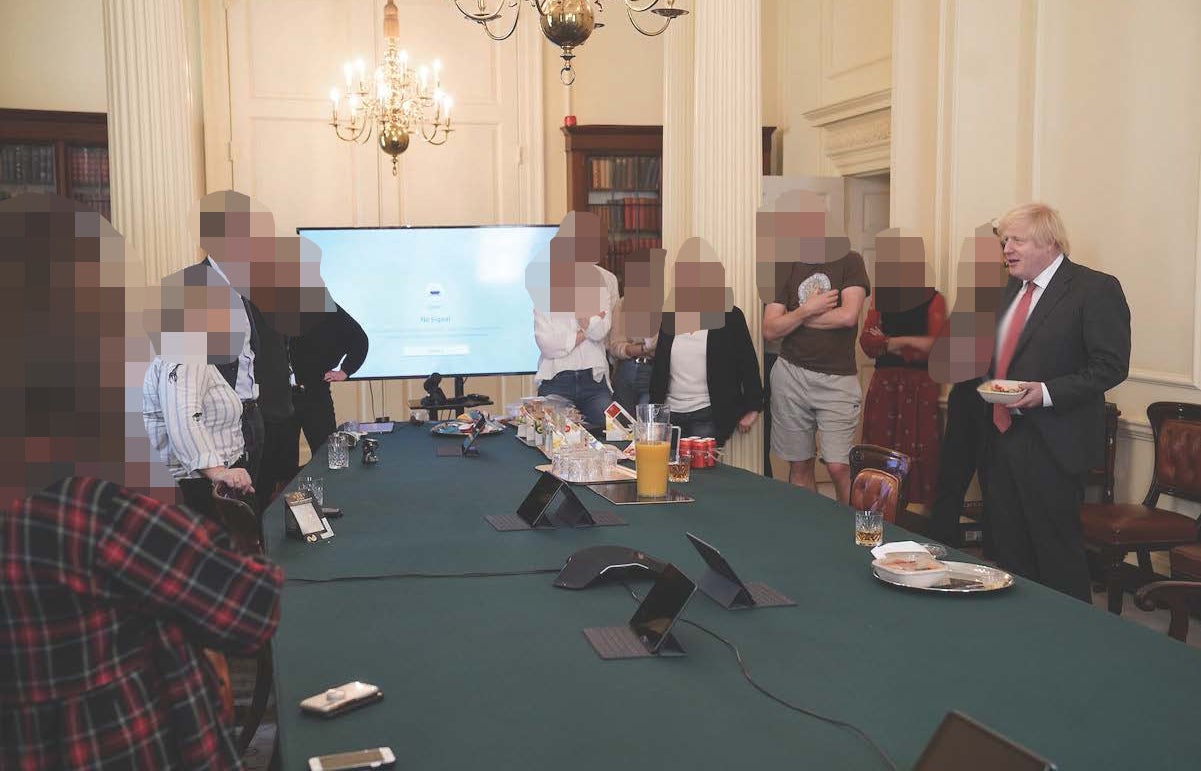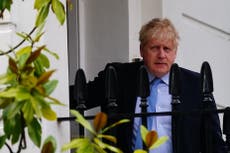What were the Covid rules and guidance when Boris Johnson attended parties?
In the period when parties were held in No 10, indoor gatherings were banned by law, while employers were advised to try to avoid face-to-face meetings
Your support helps us to tell the story
From reproductive rights to climate change to Big Tech, The Independent is on the ground when the story is developing. Whether it's investigating the financials of Elon Musk's pro-Trump PAC or producing our latest documentary, 'The A Word', which shines a light on the American women fighting for reproductive rights, we know how important it is to parse out the facts from the messaging.
At such a critical moment in US history, we need reporters on the ground. Your donation allows us to keep sending journalists to speak to both sides of the story.
The Independent is trusted by Americans across the entire political spectrum. And unlike many other quality news outlets, we choose not to lock Americans out of our reporting and analysis with paywalls. We believe quality journalism should be available to everyone, paid for by those who can afford it.
Your support makes all the difference.Boris Johnson has endured a tense showdown with MPs who are investigating whether he intentionally misled Parliament over parties held at Downing Street during the Covid lockdown.
Mr Johnson, who was prime minister at the time, this week admitted that he did mislead MPs, but has denied doing so “intentionally or recklessly”, saying he relied on advice from aides during the events at No 10 that took place between May 2020 and April 2021.
As Covid-19 swept the UK, the government laid out rules for everyone to follow, which were passed into law, in an attempt to curb its spread and reduce pressures on the NHS. But it also published guidance, including for employers, on working arrangements to reduce the risk of employees spreading the virus.
The Privileges Committee is investigating to what extent Mr Johnson would have known what government guidance and rules were in place at the time.
When later questioned in Parliament about Downing Street parties, he repeatedly said No 10 complied with both.
Video clips were played to the working group in which he told MPs no guidance was breached and he had been assured no rules were broken. The guidance and rules were followed at all times, he said in the clips from December 2021 and May 2022.
Privileges Committee chairwoman Harriet Harman said, as she opened the hearing: “When we refer to rules we mean regulations laid down by the house which have the force of law and under which fixed penalty notices were issued.

“Guidance is guidance issued by the government. For example, when Mr Johnson was talking about ‘hands, face, space’, he was referring to the guidance on social distancing when he said space.”
The committee will look at what rules and guidance were in force at the relevant time, Mr Johnson’s knowledge of them, his attendance at or knowledge of gatherings that were not socially distanced and those for which fixed penalty notices were issued, she said.
Although there is some overlap, the guidance goes into greater detail on how to carry out activities in view of the rules. The guidance did not have the force of law behind it, although employers still had legal duties under health and safety law to keep employees and others safe.
What were the rules on gatherings?
A second national lockdown began on 5 November 2020, under which indoor gatherings of more than two people were banned.
The regulations stated: “No person may participate in a gathering which takes place in a public or private place (a) outdoors, and consists of more than six persons, (b) indoors, and consists of two or more persons.”
Exceptions included “where the gathering is essential for work purposes or for the provision of voluntary or charitable services” under regulations in force before 1 June 2020, or “reasonably necessary” for work purposes under regulations in force from 1 June 2020.
Some of the fines handed out to No 10 partygoers were for breaching this restriction.

The document of evidence gives as an example that on 14 January 2021, Mr Johnson gave a speech at a leaving gathering, involving up to 20 people, for two officials.
On that date, London and the rest of England were classified as a Tier 4 area, meaning indoor gatherings of two or more people were banned.
Photographs show Mr Johnson giving his speech, and fixed penalty notices were issued to staff for this event.
The guidance on workplaces
A government document, published on 11 May 2020 and updated on 5 November 2020, called Covid-19 secure guidance for employers, employees and the self-employed, read: “You must maintain social distancing in the workplace wherever possible.
“Where the social distancing guidelines cannot be followed in full in relation to a particular activity, businesses should consider whether that activity can be redesigned to maintain a 2m distance or 1m with risk mitigations where 2m is not viable.”
The document, prepared by the Department for Business, Energy and Industrial Strategy, which now appears to have been removed from the government’s own website, says that mitigations included reducing the number of people each person has contact with.
On meetings, it says the objective is to reduce transmission due to face-to-face meetings and maintain social distancing in meetings.
You must maintain social distancing in the workplace wherever possible
Steps that would “usually be needed” included using remote working tools to avoid in-person meetings.
It reads: “Only absolutely necessary participants should attend meetings and should maintain 2m separation throughout.
“Avoiding transmission during meetings, for example avoiding sharing pens and other objects …”
“Holding meetings outdoors or in well-ventilated rooms whenever possible.
“For areas where regular meetings take place, using floor signage to help people maintain social distancing.”
There is no suggestion in the guidelines that drinking and socialising would have been permissible.
Another document of evidence to be considered by the committee highlights a statement by the then-prime minister on 9 November 2020 in which he said neither mass testing nor vaccines progress was a substitute for the national restrictions or social distancing.





Join our commenting forum
Join thought-provoking conversations, follow other Independent readers and see their replies
Comments